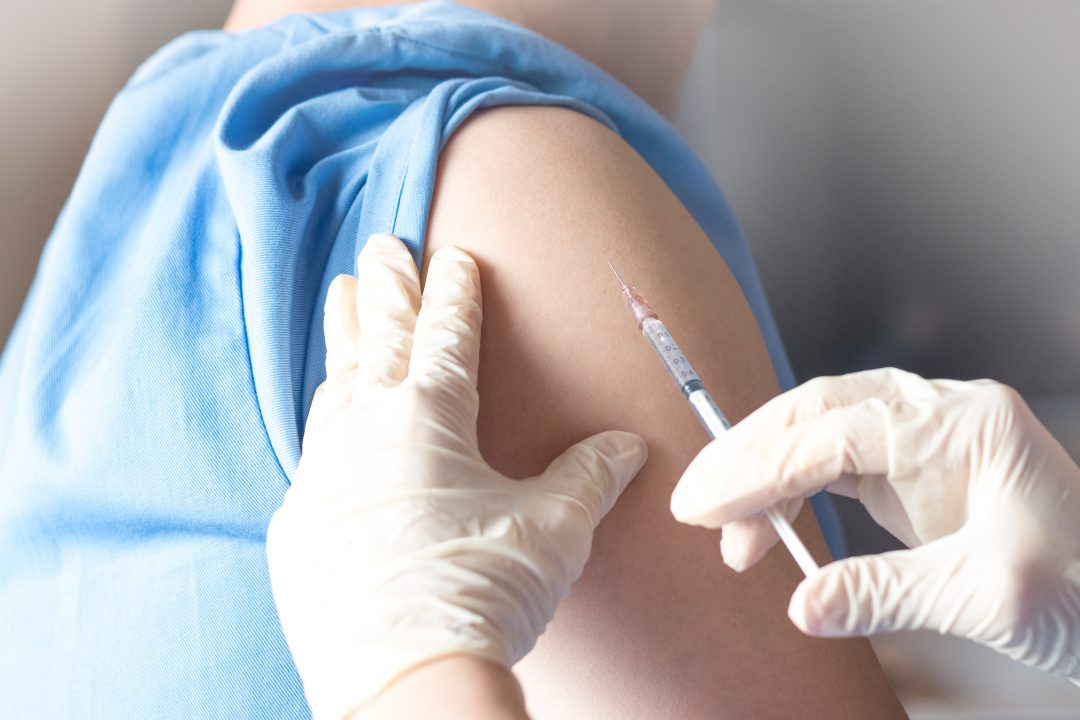UK scientists have identified the markers associated with rare blood clots linked to the Oxford/AstraZeneca Covid-19 vaccine, which could help treat the condition more effectively and increase survival chances.
A team of experts, led by Dr Sue Pavord of Oxford University Hospitals (OUH) NHS Foundation Trust, have set out a guidance for clinicians that can help diagnose what they call vaccine-induced immune thrombocytopenia and thrombosis (Vitt).
Thrombocytopenia is a condition where the patient has a low count of cells that help the blood clot, known as platelets.
Thrombosis occurs when blood clots block veins or arteries and can lead to life-threatening conditions such as a stroke or heart attack.
In their findings, published in the New England Journal of Medicine, the scientists said overall mortality rate of those presenting to hospitals with definite or probable Vitt was 23%.
They said the odds of death increased where patients had a very low platelet count – which was 73% among those with platelet counts below 30,000 per cubic millimetre and bleeding in the brain following blood clots, known as cerebral venous sinus thrombosis (CVST).
But the experts said treatments such as plasma exchange, which involves removing straw-coloured liquid known as plasma from the blood and replacing it with new plasma fluid, can dramatically increase survival chances for those with severe disease.
Dr Pavord, who is a consultant haematologist at OUH, said: “Our study shows that for those who develop Vitt, it can be devastating: it often affects young, otherwise healthy vaccine recipients and has high mortality.
“It is particularly dangerous when the patient has a low platelet count and bleeding in the brain.”
She added: “Vitt is a very new syndrome, and we are still working out what the most effective treatment is, but identifying prognostic markers has helped to determine what is the more effective way to manage the condition.”
Up to July 28 2021, the MHRA has received reports of 411 cases of major blood clots with concurrent low platelet counts in the UK following AstraZeneca vaccine.
CVST was reported in 146 cases.
The overall case fatality rate was 18% with 73 deaths, six of which occurred after the second dose, the MHRA said.
At that time, the estimated number of first doses of AstraZeneca administered was 24.8 million while the estimated number of second doses was 23.6 million.
Dr Pavord said: “It’s important to stress that this kind of reaction to the Oxford-AstraZeneca vaccine is very rare.
“In those aged under 50, incidence is around one in 50,000 people who have received the vaccine.”
She also said that the team has not seen any new cases of Vitt in the last three-to-four weeks, suggesting that the decision to offer an alternative vaccine to under-40s may have played a role.
Dr Pavord said: “We haven’t seen new cases for the last four weeks or so and this has been a tremendous relief.”
For the study, the researchers evaluated 294 patients aged between 18 and 79, 220 of whom were classed as either definite or probable cases of Vitt.
All the patients had received the first dose of the AstraZeneca vaccine and with symptoms appearing five to 48 days after the jab.
The researchers said 85% of the patients studied were under the age of 60, many of whom had no underlying medical conditions.
They said treating Vitt may involve administering immunoglobulins intravenously to increase platelet count, steroids to dampen the immune system and blood thinners to prevent further blood clots.
Follow STV News on WhatsApp
Scan the QR code on your mobile device for all the latest news from around the country


 iStock
iStock

























